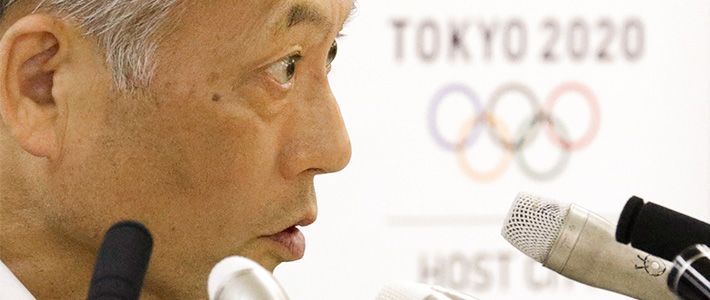
Money Scandal Topples Tokyo Governor Masuzoe
Politics- English
- 日本語
- 简体字
- 繁體字
- Français
- Español
- العربية
- Русский
Masuzoe Pre-empts No-Confidence Vote
Tokyo Governor Masuzoe Yōichi announced his resignation on June 15, 2016, following a scandal concerning his use of political funds for private purposes. The resignation, submitted to the speaker of the Tokyo Metropolitan Assembly, will become effective on June 21.
The assembly, including members from the ruling coalition Liberal Democratic Party and Kōmeitō, had been expected to pass a vote of no confidence in the governor later the same day.
Masuzoe is the second consecutive governor to resign following a financial scandal. In December 2013, Inose Naoki—who played a central role in securing the 2020 Summer Olympics for Tokyo—quit after serving for just one year when questions arose over a ¥50 million loan from hospital operator Tokushūkai. Masuzoe has been in office for two years and four months.
A gubernatorial election will take place within 50 days of Masuzoe’s formal resignation. If the new governor serves a full four-year term, it is possible he or she will run for reelection while the Tokyo Olympics are in full swing from June 24 to August 9, 2020.
The Road to Resignation
Masuzoe faced criticism in April for his lavish overseas business expenses. His use of official vehicles to travel to a holiday home in Kanagawa Prefecture also came to light. After initially denying that there was any problem, he pledged to scale down spending and sell the Kanagawa property.
In May, Masuzoe came under further fire when allegations emerged that he had used money raised by his political funding group on private family trips, dinners at restaurants, souvenirs, and works of art.
Where Did the Money Go?
| Public Visits Overseas | Spent more than ¥50 million in total on business trips to London and Paris in autumn 2015. This included ¥2.7 million on first class air travel and suite rooms at ¥200,000 per night. |
| Official Cars | Used official cars to travel to and from his holiday home in Yugawara, Kanagawa Prefecture, almost every weekend since May 2015. Also used the cars to attend concerts, baseball games, and other events. |
| Accommodation and Dining | Spent ¥370,000 of political funds on accommodation in Kisarazu, Chiba Prefecture, during New Year family trips in 2013 and 2014. Also alleged to have used political funds for meals enjoyed with his family at restaurants. |
| Artworks | Spent more than ¥3 million of political funds on 100 works of art, including purchases from online auction sites. |
Masuzoe faced censure from assembly members from immediately after the opening of this session on June 1. His inadequate justifications for his actions also failed to stem increasing public pressure to resign. The Japanese media indicate that the LDP and Kōmeitō pushed forward with a vote of no confidence to prevent the unfavorable political atmosphere from lingering into the House of Councillors election campaigning season. Canvassing begins on June 22 before the July 10 vote.
Masuzoe, now 67, entered politics after working as an assistant professor in international politics at the University of Tokyo. As an LDP member, he became minister of health, labor, and welfare while serving as an upper house lawmaker. In 2010, he left the LDP and acted as president of the New Renaissance Party until 2013. He was elected as governor of Tokyo in 2014.
(Originally published in Japanese on June 15, 2016. Banner photo: Tokyo Governor Masuzoe Yōichi at a Tokyo press conference on June 10, 2016. © Jiji.)